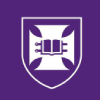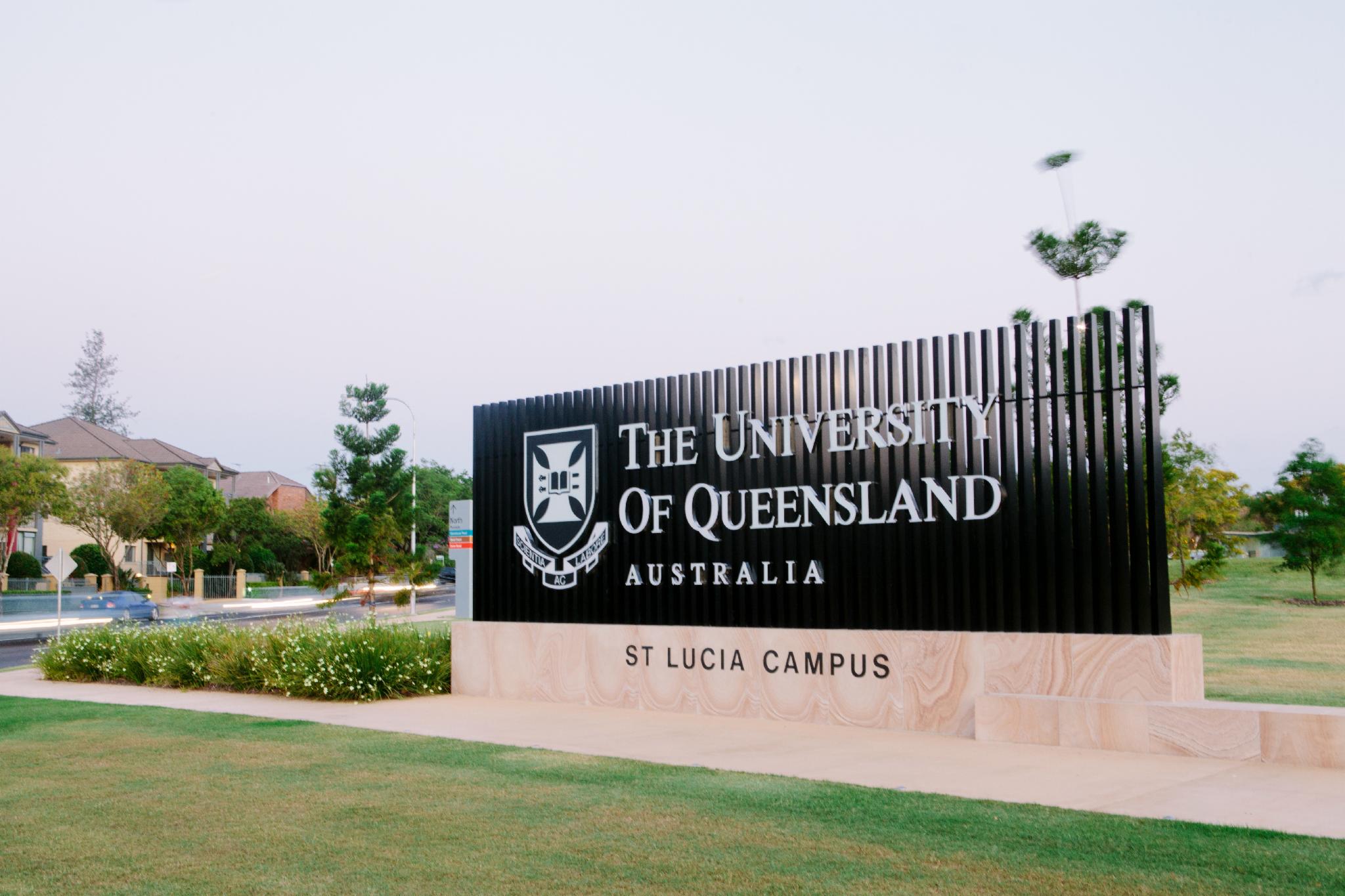Brisbane QLD 4072, Australia
Career Counselling

The University of Queensland is ranked in the top 50 in the world; it is located in Brisbane in Australia. As a leading centre of teaching and globally impactful research, it is home to more than 56,000 students, with approximately 34,000 undergraduates and 22,000 postgraduates, 37% of whom are from abroad, representing an international network drawn from 137 countries.
UQ has 3 campuses and 10+ research locations spread over Brisbane and Queensland. The primary St. Lucia campus houses most academic activity and contains historic buil...
| Establishment year | 1910 |
| Total Students | 56,278 (2021) |
| International Students | 20,982 |
| QS World University Rankings 2024 | 43 |
| Campus Size | 4,127 acres |
| Total Number of Campuses | 3 |
| University Website | https://www.uq.edu.au/ |
| No. of Schools and Divisions | 6 Faculties (Business, Economics & Law, Engineering, Architecture & Information Technology, Health and Behavioural Sciences, Humanities and Social Sciences, Medicine, Science) |
| Nobel Prize Winner Alumni | 1 alumnus + 1 teacher |
| No. of Education Programs | 148 (undergraduate), 185 (postgraduate) |
| Student to Faculty ratio | 8:1 (student to staff ratio) |
The University of Queensland offers undergraduate and postgraduate courses through 6 Faculties, which are further subdivided into departments, institutes, centres and schools.
Among the 8 world renowned Research Institutes of Excellence at UQ are the Australian Institute for Bioengineering and Nanotechnology, the Queensland Brain Institute, and the Institute for Social Science Research.
Undergraduate applicants to the University of Queensland - both domestic and international - must complete the following entry requirement checks:
Postgraduate applicants must satisfy four types of entry requirements:
Domestic undergraduate applications to UQ must be submitted via the Queensland Tertiary Admissions Centre (QTAC) website. Most UG programs start only in Semester 1, whose deadline is in December every year. Applicants can list up to six program preferences. Offers are usually made before the middle of February.
International undergraduate applicants must use the UQ Online Applications portal. Once details have been entered and supporting materials (e.g. certified transcripts) have been uploaded, the application can be submitted after payment of a non-refundable $100 fee. Confirmation of offers is usually made both over email and on the portal.
Postgraduate applications to UQ are usually submitted directly to the University for most programs, though six programs (e.g. Master of Nursing Studies and the Master of Teaching) must be applied to via the QTAC website. The application process directly to UQ is simple: after creating an account on the application portal, candidates can fill out the form and upload supporting documents in parts, saving progress at each step. Deadlines for applications are 31 January for the first semester and 30 June for the second. Applicants can track the status of their application on the portal at any time. The Doctor of Medicine application process is significantly more involved, and the University lists all the steps.
Most undergraduate domestic students at the University of Queensland have their tuition fees subsidised by the Commonwealth supported place (CSP) program. Under this scheme, they pay a student contribution towards their degree, according to which degrees are placed in four bands with annual fees between $4,124 and $15,142.
Fees for domestic postgraduate students vary by course. About 50 programs have Commonwealth supported places for PG students; these domestic candidates pay low student contribution amounts rather than full tuition fees - for example, $8,320 per year for the Master of Architecture courses. A majority of the courses are full fee paying, for example: $22,270 p.a. (Master of Applied Linguistics), $37,920 (Master of Advanced Economics), with the highest fees corresponding to the MBA degree ($80,208 per year).
Undergraduate tuition fees for international students are substantially higher. At the lower end are degrees like Bachelor of Arts ($35,360 per year); at the higher end are programs like the Bachelor of Dental Science ($77,456 annually). Each program also has annual non-tuition fees (application fee, a Student Services and Amenities fee, academic materials, and Overseas Student Health Cover for international students): these range from $1,227 to $10,396 per year based on the degree.
Postgraduate tuition fees for overseas students vary by program, based on the number of courses taken every year. Indicative values are: $31,744 per year for the Master of International Relations, $47,264 for most Engineering Courses and, at the top end, $85,024 for the Doctor of Medicine degree.
All students at UQ should also budget for living costs (accommodation, food, travel, and personal expenses). The University recommends a monthly budget of between $2,000 and $3,000, coming to about $20,000 per year (assuming 9-10 months spent on campus).

The University of Queensland has three campuses and multiple research sites. The main St. Lucia campus is located near the city centre of Brisbane: It has a blend of historic architecture with its trademark sandstone buildings, green open spaces, parks, and gardens, and modern state of the art buildings and academic facilities. The Gatton campus houses an agricultural college, veterinary sciences, botany, and zoology classes. The Herston campus is located next to the Royal Brisbane and Women's Hospitals, and is home to many health students and researchers. The University has over 10 other research locations in the state of Queensland: UQ Brisbane City is located in the central business district and houses many industry collaborations; the Heron Island Research Station is located on the Great Barrier Reef, and the Pharmacy Australia Centre of Excellence is an important pharmaceutical teaching and research location.
UQ Sport operates Fitness, Tennis, Aquatic and Athletic Centres to serve students fitness and sports needs, as well as a wide range of outdoor sports fields. It operates over 60 group fitness classes every week, and has a wide range of memberships that can be customised to the individual needs of each student.
Sports activities at the University occupy a wide spectrum: from friendly Social Sport games every week to the Elite Athlete program, where world class sportspeople are guided in balancing sports and academic commitments. Personal trainers are available for both fitness guidance and high level injury rehab and recovery for the top athletes at UQ. There are also more than 35 sporting clubs across the St. Lucia and Gatton campuses: these are open to staff, students, alumni, and members of the public, and are open to both novices and experienced players.

Careers and Employability at the University of Queensland provides many crucial student career services:
The University of Queensland provides hundreds of scholarships to help its students defray the high expenses associated with tuition fees and living costs. The full list of funding options can be viewed using the scholarship search tool.
Most scholarships are awarded based on one or more of these focus areas: academic excellence, Aboriginal students, creative achievements, under-represented groups, financial hardship, and elite sporting potential.
There are three kinds of scholarships at UQ based on application type: the majority are automatic assessment, where no separate application is required. Certain academic merit and sports scholarships require a customised application by students. There are also scholarships awarded by external organisations, which have a separate application track.
One of the flagship scholarships is the International High Achievers Scholarship, where both undergraduate and postgraduate awardees can receive a total fee reduction of $10,000 over the first two semesters of study. Students are selected based on academic excellence, and it is open to applicants from 13 different countries in Asia e.g. India, Japan, and Vietnam.
